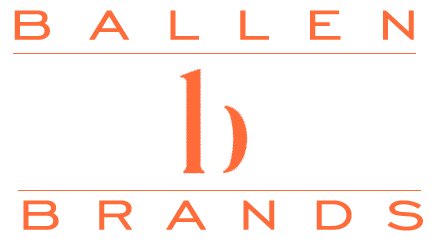When you’re preparing to design your website, there’s something to consider first. There are two types of websites you can create: static websites or dynamic websites. The biggest difference is in how content is stored, accessed, and displayed.
Each has a set of benefits as well as setbacks. There’s no right or wrong choice. You just have to compare the differences to determine which is best for you. So, what are the differences between static and dynamic websites? Here are a few.
What is a Static Website?
In the earliest days of the internet, all websites were created as static sites. Dynamic websites didn’t exist yet. Technology had to evolve.
A static website is one that is unchanging unless a website developer modifies the code. For example, you may have a home page, about us page, products page, services page, and a contact us page. Except for updating information, when necessary, such as a change in phone number or address, those pages stay the same no matter who is viewing them, where they’re viewing from, the time of day they visit, or any other factors. Everyone sees the same website.
Static web pages are also known as stationary pages or flat pages. They are typically HTML documents that are stored as files accessible via a web server over Hypertext Transfer Protocol or HTTP. They don’t require a database or extensive web programming.

These websites are written almost entirely in HTML code, JavaScript, and CSS.
Static websites are pre-rendered pages cached and delivered by a content delivery network. In the physical world, this would be the same as typing a document, printing it, storing it in a folder, and then taking it out when you need to show it to someone. It’s always the same sheet of paper, the same message. That’s the essence of a static website.
If you want to update your website, you either need advanced coding skills, or you’ll need to hire a developer to manually make the changes for you.
What are the Benefits of Having a Static Website?
- Easy setup: There are several open-source static website generators that can help you set up your website quickly and easily, including Jekyll, Hugo, Hexo, Gatsby, ViewPress, and more.
- Advanced security: Static websites don’t have some of the vulnerabilities that dynamic websites have, primarily because there’s no third-party software that allows more room for your site to be compromised. They don’t rely on a database or content management system. With a static website, you don’t need to use software plugins or extensions that could get outdated or experience security breaches.
- Improved performance: Because the content on a static website is unchanging and doesn’t require the brainpower of a content management system, it’s faster to load, which can reduce bounce rates and increase user experience. Static websites can also handle higher volume traffic than dynamic websites. It doesn’t need scripting; it uses only CSS and HTML, making it much more efficient.
- Fewer site errors: Since a static website isn’t updated on the fly and doesn’t diversify its content, a user is less likely to get an error page like those in a dynamic website whose pages have trouble loading or whose content shifts. When website visitors get error pages, they’re likely to leave the site and potentially won’t return. Error pages also increase bounce rates, which lowers search engine authority.
- Less expensive to build and maintain: Static websites don’t take up much space; the files are small. You can set one up with a static website generator and won’t have to pay as much for hosting. You will, however, need to pay a developer when it’s time for an update.
built to resolve common pain points in the real estate industry
What are the Disadvantages of a Static Website?
- Stagnant content: With content that doesn’t change, there’s no reason for a viewer to return to your website. Readers get bored. There’s also no real way to gain authority on Google with a fixed page. To perform well on search engines, you need a steady stream of informative, high-quality, valuable content that readers can benefit from. If your goal is to build website traffic and search engine authority, you’ll need a dynamic website.
- Small amounts of content: A static website is not designed to house large amounts of content, such as the accumulation of hundreds of blog posts or pages. Instead, it’s more of a digital business card and menu of products or services. If you’re planning on growing a large web presence, you may do better with a dynamic website.

- Engagement: Static websites don’t provoke engagement that interactive websites do.
- User experience: Another disadvantage to static websites is that they’re not mobile responsive, meaning they don’t adapt to different devices. A page that looks stunning on a desktop might not translate well into mobile.
- Updates: You need to hire a web developer to make alterations to your content. Unless you’re a coding pro, you may have trouble updating your static website without help.
What is a Dynamic Website?
A dynamic website is one that requires a high-functioning database and has variables in how its content is displayed. For example, a dynamic website could look different for someone in Japan than it would in America. It can also change based on the time of day, the viewer’s web browser, the device it’s viewed on, and other factors.
Other examples of dynamic websites include calendars, weather, to-do websites, commerce sites, and other frequently updated information.
The content is stored on a database rather than a server. With a dynamic website, hundreds of people could be visiting the same URL, and, technically, they could each see something different based on the site’s settings, user engagement, and target demographics.
Unlike static websites, you can easily modify them and can include action items, such as image slideshows, scrolling text, and other moving parts.
These websites are written in multiple computer languages, including ASP.NET, ASP, Ajax, and CGI.
Dynamic websites are more popular than static websites because they can hold more content, do a better job of piquing the interest of viewers, and help gain search engine authority.
Dynamic websites use cookies, small text files to gather data about website visitors and then display customized content.
These websites deliver pages that are generated in real-time for up-to-the-minute information.
10 Best Real Estate WordPress Themes [2021]What is a Cookie?
A cookie on the internet is a small data file that a website installs on your computer browser to track information about your activity, such as the day and time you logged in, what pages you viewed, how long you stayed on each page, what you clicked, and other engagement. By assembling and assessing the data, the dynamic website displays more customized content.

Websites using cookies are obligated to notify you that they’re installing a cookie on your computer. However, you have the ability to block them by altering the settings in your web browser, so dynamic websites don’t always display optimally on every computer.
What is a Content Management System?
A content management system, known also as a CMS, is software – an application used to publish and store web content with the ability to allow multiple authorized users to contribute, create, edit, and publish content in a myriad of forms, including written text, images, GIFS, and video. You can manage and optimize your content to enhance your viewer’s web experience.
For example, if a user logs in at 10 a.m., your website might display a good morning message, whereas a 2:00 time would produce a good afternoon message.
WordPress is one shining example of a dynamic website, and each website created on the WordPress platform is also dynamic.
With a CMS, you can schedule posts to publish at a future date, edit past posts, or publish on the spot.
Drupal, Joojla, and Netlify, are also highly reputable content management systems.
55 of the Best Ways to Generate Real Estate LeadsWhat is a Plugin for a Dynamic Website?
Plugins are pre-created code files that bring a dynamic website to life, offering a plethora of features that add functionality to your website with easy plug-and-play software that doesn’t require you to know any programming at all.

There are plugins designed to help increase SEO, format blog posts, share to social media, and there are plugins for specific industries, such as real estate, that can display things like properties, market reports, home valuations, and more.
A few of the more popular WordPress plugins include WPForms, MonsterInsights, Yoast SEO, OptinMonster, WP Rocket, SearchWP, MailChimp, and more.
What are the Benefits of a Dynamic Website?
- Professional appeal: Dynamic websites tend to offer a more professional appearance than static websites. They’re sleek and have more functionality.
- Updated content: One of the greatest advantages to a dynamic website is that you’re able to easily add, modify, and delete content, such as adding blog posts.
- More content: Your dynamic website allows you to create hundreds and hundreds of pages so you can build search engine authority, get more traffic, and generate more leads.
- Flexible designs: With a dynamic website, you can quickly make changes throughout the entire site, such as changing fonts, backgrounds, or colors.
- Mobile Responsive: Dynamic websites are mobile responsive, so you can view them on any device and have a pleasurable experience. The text and images shift to fit the size of the screen without cutting anything off or forcing you to turn your mobile phone sideways to view.
- User Experience: With the help of cookies and demographics, a user accesses a page that’s content will adjust specifically for that viewer, even popping up a notification that you left an item in your shopping cart or displaying related products to the one you most recently purchased.
What are the Disadvantages of a Dynamic Website?
- Higher cost: If you’re having a developer set up your website for you, you’ll pay a pretty penny for an effective, professional dynamic website capable of generating more leads. You’ll likely be able to maintain it yourself after it’s set up, but a professional can make sure that your website’s framework is properly established and that the back end is set up for search engine optimization.
- Security: Each plugin you use on your website creates a new pathway for potential risk to infect your site. The database itself also creates a vulnerability each time an application runs, complex scripts are deployed, and a database is accessed.
- Load time: the more plugins you use, and the more content is uploaded, the heavier a website becomes, which could weigh download times. Slow load times cause a viewer to click out of your site; they don’t want to wait. When this happens, your bounce rate increases, which, in turn, lowers your search engine authority.

- Distractions: When there are too many moving parts on a page, like flashing ads, scrolling text, music, and other active elements, it can be distracting; the viewer won’t know where to focus their attention. It may feel chaotic and could make the reader confused as to where to find the content they need.
- Error pages: Dynamic websites have more likelihood of serving up a 404-error page, which happens when someone attempts to access a page that cannot be located.
- Backup and recovery: With a static website, the data files are easily restored. But with a dynamic website, there may be a more complex and expensive need to run backup and recovery.
Should You Choose a Static or Dynamic Website?
If you’re using your website as a digital business card with basic pages that don’t require updating, a static website is best for you. If you’re starting small, want to invest less, and not worry about website updates, a static website is your answer. You can always upgrade to a dynamic website later as your business grows.
On the other hand, if your business operates online, meaning that’s how you intend to generate your leads and build search engine authority, you’ll want a dynamic website. If you’re working with frequently changing content like home page text, sales pages, graphics, videos, and blog posts, a dynamic website is the best solution for you.
7 Ways to Find the Best WordPress Web Design Company![Static vs. Dynamic Websites: What’s the Difference? [2021]](https://ballenbrands.com/wp-content/uploads/2021/09/ballenbrands_static_vs_dynamic_websites_whats_the_difference.png)
